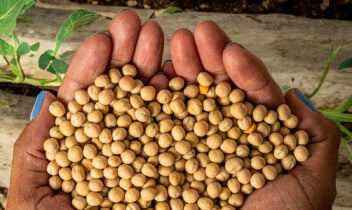Kale
SELECT
Kale is available fresh and frozen for good nutrition and convenience. If selecting fresh, choose dark colored kale bunches. Avoid brown or yellow leaves.
Nutrient Content Claims
Low fat, Saturated fat free, Cholesterol free, Low sodium, High in vitamin A, High in vitamin C, Good source of calcium, Good source of potassium
Not only is kale low in calories, but is also a good source of fiber which may help lower cholesterol levels. Kale has one of the highest amounts of vitamin K out of all of the vegetables. Vitamin K is vital for blood to clot normally and helping the body heal from injury. Kale is high in vitamins A and C as well. Vitamin A is important for healthy vision, skin, reproduction and immunity. Vitamin C is a powerful antioxidant that supports immune health and is needed for the body to absorb iron. Kale is additionally a good source of minerals such as calcium needed for bone health, muscle contractions and hormone regulation. These are just a few examples of the great nutritional benefits of eating kale. However, if you have problems with blood clotting or are taking anti-coagulants make sure to consult your doctor before adding kale to your diet.
STORE
Store kale in a plastic bag in the coldest part of the fridge for 3-5 days.
SERVE
Check out our kale recipes!
SHARE
Social Media Posts
#DYK kale needs some lovin too? Check out these tips from chef Andrew Dole on how to massage kale to get the perfect salad texture. http://bit.ly/2XFQ6XR @fruitsandveggies #haveaplant
The snack that everyone will love: Cheesy Baked Kale Chips http://bit.ly/37u89EJ @fruitsandveggies #haveaplant
Enjoying more fruits and vegetables, inclusive of fresh, frozen, canned, dried and 100% juice, is a delicious way
to enjoy a happy, healthy and active lifestyle.
@fruitsandveggies #haveaplant


